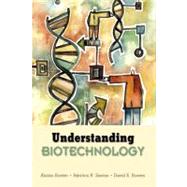
Note: Supplemental materials are not guaranteed with Rental or Used book purchases.
Purchase Benefits
What is included with this book?
Aluízio Borém is an agronomist, faculty member at the Federal University of Vicosa in Brazil, and a member of the Brazilian Biosafety Committee.
Fabrício R. Santos, biologist and faculty member at the Federal University of Minas Gerais (Brazil), currently researches the molecular evolution of humans.
David E. Bowen is pursuing a Ph.D. at the University of Idaho, where he is researching nutritional improvements in wheat.
The New copy of this book will include any supplemental materials advertised. Please check the title of the book to determine if it should include any access cards, study guides, lab manuals, CDs, etc.
The Used, Rental and eBook copies of this book are not guaranteed to include any supplemental materials. Typically, only the book itself is included. This is true even if the title states it includes any access cards, study guides, lab manuals, CDs, etc.